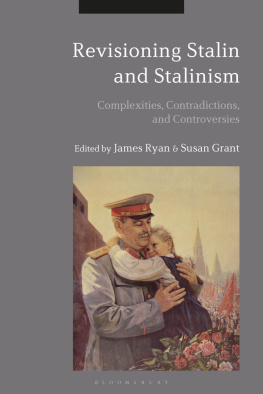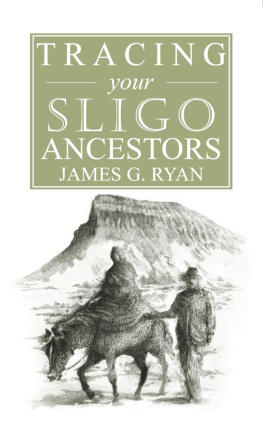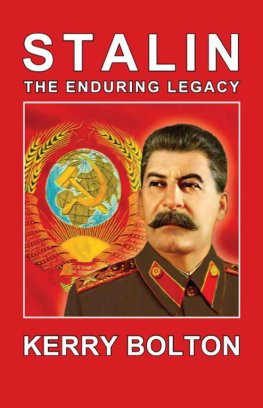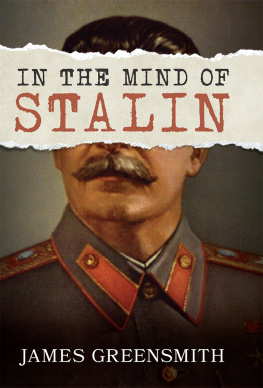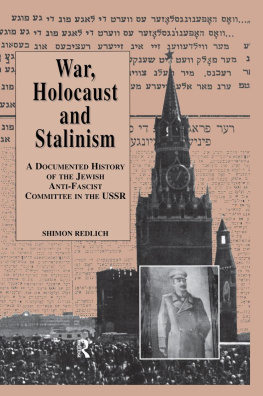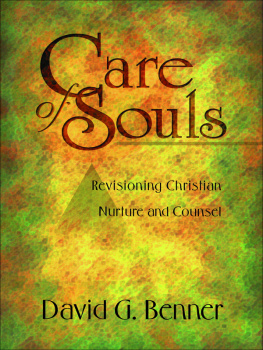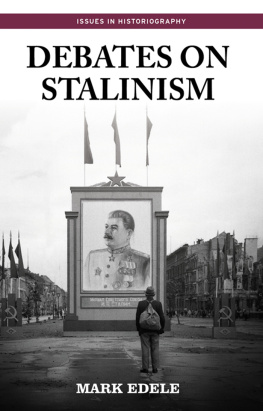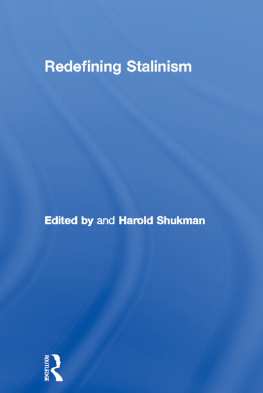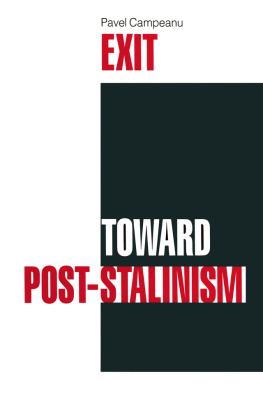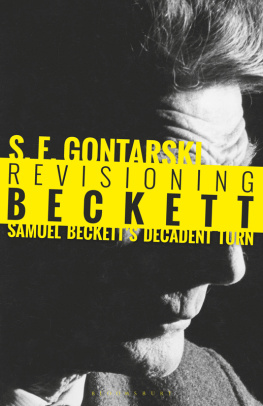James Ryan - Revisioning Stalin and Stalinism
Here you can read online James Ryan - Revisioning Stalin and Stalinism full text of the book (entire story) in english for free. Download pdf and epub, get meaning, cover and reviews about this ebook. year: 2020, publisher: Bloomsbury UK, genre: Politics. Description of the work, (preface) as well as reviews are available. Best literature library LitArk.com created for fans of good reading and offers a wide selection of genres:
Romance novel
Science fiction
Adventure
Detective
Science
History
Home and family
Prose
Art
Politics
Computer
Non-fiction
Religion
Business
Children
Humor
Choose a favorite category and find really read worthwhile books. Enjoy immersion in the world of imagination, feel the emotions of the characters or learn something new for yourself, make an fascinating discovery.
- Book:Revisioning Stalin and Stalinism
- Author:
- Publisher:Bloomsbury UK
- Genre:
- Year:2020
- Rating:3 / 5
- Favourites:Add to favourites
- Your mark:
- 60
- 1
- 2
- 3
- 4
- 5
Revisioning Stalin and Stalinism: summary, description and annotation
We offer to read an annotation, description, summary or preface (depends on what the author of the book "Revisioning Stalin and Stalinism" wrote himself). If you haven't found the necessary information about the book — write in the comments, we will try to find it.
James Ryan: author's other books
Who wrote Revisioning Stalin and Stalinism? Find out the surname, the name of the author of the book and a list of all author's works by series.
Revisioning Stalin and Stalinism — read online for free the complete book (whole text) full work
Below is the text of the book, divided by pages. System saving the place of the last page read, allows you to conveniently read the book "Revisioning Stalin and Stalinism" online for free, without having to search again every time where you left off. Put a bookmark, and you can go to the page where you finished reading at any time.
Font size:
Interval:
Bookmark:
James Ryan
Russian capital, many thousands stroll through the triumphal gateway to Gorky Park, erected in 1955, directly across the Kryimskii Val thoroughfare from a popular open-air museum (the Muzeon) where busts and statues of Soviet leaders sit as silent witnesses to a turbulent century.
In Eastern Europe, the shadow of the twentieth century often seems only barely receded. The ongoing conflict in eastern Ukraine and the more general geopolitical tensions in the former western borderlands of the USSR
Since the third presidential term of Vladimir Putin (from 2012 until his re-election in March 2018), numerous journalists, social commentators and scholars, in Russia and the West, have remarked upon a revival of Joseph Stalins reputation. As evidence, they have cited statements from Russias This is noteworthy, of course, because of the nature of Stalinist rule: an astonishingly violent dictatorship that pursued lethal policies of social upheaval and control in the name of socialist modernization, resulting in several millions of deaths in peacetime through execution or neglect and the suffering of many millions more.
This chapter examines and explains the views of Russians both the ruling elite and ordinary citizens on Stalin and Stalinism. In so doing, it considers the politics of history in Putins Russia, representations of the Soviet past, and what these can tell us about the mindset of Russias ruling elite and citizenry. The key question to be addressed is whether or not a distinct rehabilitation of Stalin and Stalinism is occurring in contemporary Russia. By rehabilitation in this context, I mean decisive action or a series of measures intended to restore largely to previous position or status the reputation and legacy of someone or something after a period of denigration, as well as a general popular attitudinal restoration of good repute. This study builds on that work. It provides the fullest and most up-to-date analysis of the question following a notable boost in Stalins popularity since 2014, with particular focus on the thorny issue of Stalinist repressions.
More generally, the chapter contributes to studies of collective
Russian citizens assessments of Stalins role in history reflect a manifold and divided society.
There is little appetite in Russia for a formalized process of state-instituted transitional rehabilitation of the reputation of Stalin and the Stalinist system is not a very accurate or adequate description of Russias relationship, as a whole, with this period of its past. A significant deficit of political pluralism and democratic liberties although to some extent signs of an extraordinarily repressive past does not signify re-iteration, rehabilitation, or repressed discussion of Stalinism. And, anticipating a Russia post-Putin, we simply do not know what that will look like.
The ruling elite is largely respectful of the independence of professional historians.
The point is that during the Putin era,
The evidence for a good deal of rehabilitation seems compelling. Since 1998, at least 132 sculptural depictions of Stalin have appeared in Russia. But to what extent has Russias ruling elite actually instituted a rehabilitation of Stalins leadership?
In fact, Stalin and his rule occupy a position of considerable ambiguity in the elite imagination. Unsurprisingly, the source of this is the successful war effort, and realization of the consequences for the Slavic peoples if the
Sherlock has suggested that one of the reasons it is incorrect to refer to a policy of
Is there, then, a distinction between ruling factions on these matters? In the current geopolitical climate, does it serve the instrumental and ideological purposes of the Putin administration to permit, encourage and contribute to a certain revitalization of Stalinism? There has been a difference in stress and tone between the respective statements of Putin and Medvedev as president, and the ruling elite is certainly not monolithic; different institutions of state have different cultures and interests to defend. However, there does not appear to be much evidence of a clear-cut distinction between discrete factions in relation to historical controversies. It was, after all, under Medvedevs presidency that the infamous commission to combat historical falsification was established. And since the mid-2010s, there has actually been increased attention to the victims of Stalinism in official pronouncements (see below).
What is demonstrable is that, although formally a constitutional parliamentary democracy, the Putin regime is to a considerable extent an illiberal managed democracy that is quite often authoritarian and repressive. In addition, Putin has come to play a carefully scripted role as the personal embodiment of the nations strength, values and unity, something not witnessed in this way in Russia since the time of Stalin. Nevertheless, the narrative of triumphant Russian statehood still outweighs state-supported initiatives to reckon fully and in unpredictable fashion with the deep-seated, unmeasurable, traumatic legacies of the Soviet regime.
Stalin and Stalinism further complicates the question of Russias relationship with its recent history.
To begin with, it is necessary to take a close look at sociological surveys carried out by the
However, the picture becomes more complicated when we consider responses to more specific queries. In response to the statement, whatever the mistakes and vices attributed to Stalin, most importantly, our people won the war, one sees the greatest and most consistent level of popular consensus. In 2018, 64 per cent of those polled agreed with it, 14 per cent disagreed, and 22 per cent could not or would not say. In 2016, 71 per cent agreed and 21 per cent disagreed.
This indicates a trend towards ever greater acceptance of historically justified hardships associated with Stalinism. However, when asked specifically about repressions, condemnation of the Stalinist state remains more likely. In 2017, the state-run sociological agency (VT
What sense can be made of all this? The Levada Center interviews approximately 1,600 people per survey, dispersed across age and location (and, presumably, gender). True, these polls cannot determine popular views with precision, although there are stable trends across this collection of figures over several years. But what is apparent is that the way questions are phrased, the particular terms used, are crucial; answers to questions that seek a general, overall impression can conceal a more multi-faceted and contradictory reality. A considerable majority of Russian citizens considers victory in the war to be the most important result of Stalinism. Asked about Stalin-era repressions, though, Russians are as yet more likely than not to consider that these were both unjustifiable and criminal.
Opinion polls also suggest that it is possible simultaneously to have a positive opinion of Stalin and a negative view of the Stalin era. This can help explain why a similar percentage of Russians considers Stalinist political repressions criminal and unjustifiable but rejects the proposition that Stalin should be considered criminally responsible. Yet in 2018, 44 per cent of respondents agreed that Stalin was an inhuman tyrant, whereas only 26 per cent disagreed! In fact, in 2016 Levada Center analysts published the remarkable observation that amongst those that considered Stalin an inhuman tyrant, 23 per cent nonetheless expressed positive feelings towards him.collective identity that Gudkov identifies. The discordances of historical Stalinism, and elite political discourse that both valorizes and condemns the Stalinist regime, are intellectually challenging to negotiate.
Font size:
Interval:
Bookmark:
Similar books «Revisioning Stalin and Stalinism»
Look at similar books to Revisioning Stalin and Stalinism. We have selected literature similar in name and meaning in the hope of providing readers with more options to find new, interesting, not yet read works.
Discussion, reviews of the book Revisioning Stalin and Stalinism and just readers' own opinions. Leave your comments, write what you think about the work, its meaning or the main characters. Specify what exactly you liked and what you didn't like, and why you think so.

